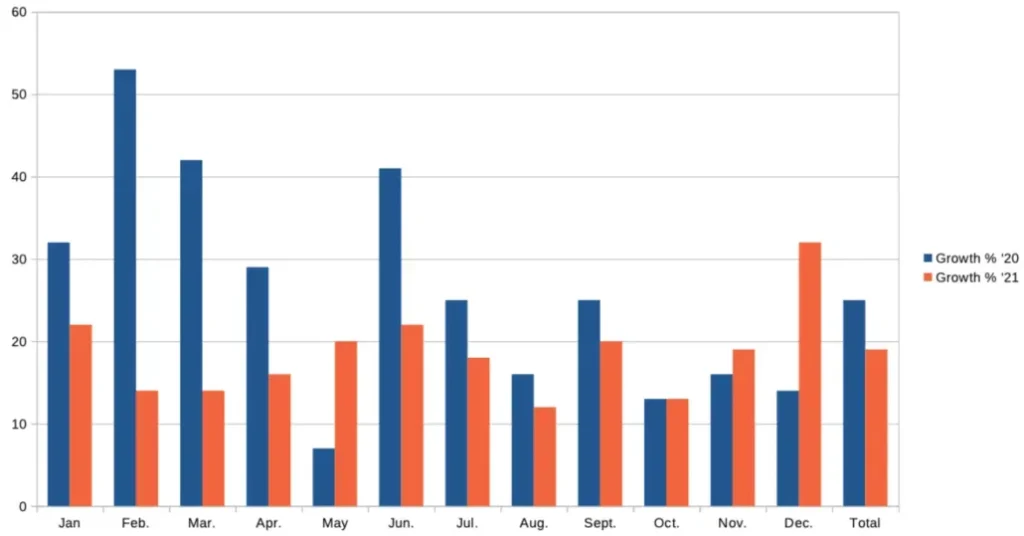TSMC profit growth has soared to remarkable heights, reflecting the booming demand for advanced semiconductor manufacturing. The Taiwan Semiconductor Manufacturing Company announced a staggering 61% year-on-year increase in its second-quarter profit, showcasing its resilience in a competitive market. Driven by the insatiable appetite for AI chip demand, TSMC’s financial performance has exceeded market expectations, bolstered by a notable partnership with industry giant Nvidia. With quarterly revenues reaching NT$933.80 billion, TSMC remains a pivotal player in the tech landscape, despite facing hurdles from U.S. trade policy impacts. As the semiconductor manufacturing sector evolves, TSMC’s ability to innovate and adapt ensures its continued growth and dominance in the industry.
The remarkable surge in TSMC’s earnings highlights a significant trend in semiconductor technology and market dynamics. As the world’s leading chipmaker, TSMC is navigating through the complexities of modern production demands, especially with the rising interest in AI technology and advanced processors. The financial results for this quarter underline TSMC’s strategic role in the semiconductor landscape, particularly in response to ongoing developments in U.S. trade negotiations. Partnerships with key players like Nvidia only strengthen TSMC’s position, while the semiconductor sector grapples with both opportunities and challenges from global policies. Ultimately, the increase in profits is a testament to TSMC’s critical influence on the industry’s trajectory.
TSMC’s Impressive Profit Growth
In the latest quarterly results, TSMC reported a remarkable 61% increase in net profits year-on-year, showcasing the company’s strong position in the semiconductor industry. This growth is largely attributed to the soaring demand for artificial intelligence (AI) chips, a segment that has seen unprecedented interest from tech giants. With TSMC’s revenue reaching NT$933.80 billion, the company has not only surpassed expectations but has also set a new benchmark for profit in the semiconductor manufacturing sector.
The ability of TSMC to deliver advanced chips, particularly those measuring 7 nanometers or smaller, has given the company a significant competitive edge. These compact chips are critical in enhancing processing power and energy efficiency, making them essential for applications in AI and machine learning. As businesses pivot towards incorporating AI into their operations, TSMC’s technology has become indispensable, thereby driving up demand and profits like never before.
Navigating U.S. Trade Policy and Its Impact on TSMC
As TSMC rides the wave of record profits, the company faces potential headwinds from U.S. trade policies. Recent statements from the U.S. administration have hinted at imposing heavy tariffs on Taiwan’s semiconductor exports, which poses a significant risk to TSMC’s operations. The ongoing negotiations and the uncertainty surrounding tariffs can affect TSMC’s pricing strategies and operational costs, which are critical for maintaining competitiveness in the global market.
Moreover, U.S. export controls have had a notable impact on TSMC’s business dealings with China, particularly affecting collaborations with major clients such as Nvidia and AMD. While these U.S.-based companies have recently received assurances from government officials that they can continue shipping products to their Chinese counterparts, the long-term implications of trade sanctions remain uncertain. As TSMC continues to innovate and expand, navigating these trade challenges will be crucial for sustaining its growth trajectory.
The Role of AI Chip Demand in TSMC’s Success
AI chip demand is leading the charge in TSMC’s resurgence, as companies worldwide seek advanced processing capabilities to power artificial intelligence systems. With the increasing reliance on AI for everything from data processing to machine learning, TSMC’s ability to produce cutting-edge chips positions it as a key player in this burgeoning market. In particular, partnerships with industry leaders like Nvidia emphasize TSMC’s crucial role in providing the semiconductor solutions necessary for AI advancements.
As evidenced by their quarterly results, TSMC’s focus on AI chips, which account for a growing portion of their revenue, demonstrates how the market’s shift toward intelligent technologies is beneficial for their bottom line. Investing in research and development for smaller process nodes has allowed TSMC to meet the specific needs of customers looking for high-performance hardware. This adaptation not only enhances TSMC’s product offerings but also solidifies its status as an industry leader in semiconductor manufacturing.
The Impact of Partnerships: Nvidia and TSMC
The strategic partnership between Nvidia and TSMC has proven pivotal in driving forward their respective businesses. As AI technology evolves, Nvidia relies on TSMC’s advanced manufacturing capabilities to produce GPUs that push the boundaries of performance. This collaboration has yielded significant profits for both companies and reinforces TSMC’s reputation as the go-to manufacturer for high-tech semiconductors.
Notably, TSMC’s proficiency in producing chips on a 7nm scale and below not only enhances the performance of Nvidia’s offerings but also ensures higher efficiency, which is crucial for handling complex AI workloads. As the demand for advanced computing power escalates, this partnership positions TSMC front and center in the rapidly growing AI market, allowing them to leverage their strengths in semiconductor manufacturing while satisfying Nvidia’s requirement for cutting-edge technology.
Future Outlook for TSMC in a Competitive Landscape
Looking ahead, TSMC stands at the forefront of a fiercely competitive semiconductor landscape. As global demand for advanced chips continues to rise, primarily driven by innovations in AI and the Internet of Things (IoT), TSMC’s ability to adapt and innovate will be key to sustaining its leadership position. The company’s commitment to investing in research and development ensures that it remains ahead of competitors while continuously improving its manufacturing processes.
However, external factors such as trade policies and supply chain disruptions could pose challenges. TSMC must navigate these hurdles effectively while capitalizing on growth opportunities in emerging markets. As it continues to nurture partnerships and expand its production capabilities, TSMC is likely to maintain its trajectory of profit growth while shaping the future of semiconductor manufacturing.
Understanding TSMC’s Market Position Amidst Global Challenges
In the face of global challenges, TSMC’s market position remains robust, supported by its innovative manufacturing techniques and strategic partnerships. Despite rising complications from U.S. trade policies, the company has managed to maintain a strong demand for its products, especially given its leadership role in producing AI chips. This resilience is critical for TSMC as it navigates through an industry characterized by rapid technological advancements and fluctuating market dynamics.
Furthermore, TSMC’s proactive approach to mitigate risks associated with geopolitical tensions enables it to support global clients effectively. By diversifying its client base and focusing on high-demand sectors such as AI and advanced computing, TSMC fortifies its market position. As it continues to adapt to external pressures while capitalizing on its technological prowess, TSMC is well-positioned to emerge stronger from any potential setbacks.
The Historic Achievements Supported by TSMC’s Technology
The historic achievements of TSMC over the years can be attributed to its cutting-edge technology and commitment to excellence in semiconductor manufacturing. The company has consistently pushed the limits of what is possible with their advanced process nodes, leading the industry in producing some of the most efficient chips on the market. With a focus on sustainability and innovation, TSMC has established itself as a leader in an increasingly competitive space.
Not only has TSMC been instrumental in the development of AI technologies, but its partnerships with leading tech companies have also paved the way for breakthroughs in various sectors. The ability to provide high-performance chips has enabled advancements in fields such as consumer electronics, automotive technology, and healthcare, marking a significant impact on multiple industries due to TSMC’s technological contributions.
Adapting to Emerging Semiconductor Trends
As the semiconductor industry evolves, TSMC is quick to adapt to emerging trends that shape market demands. The rapid rise in AI applications is one such trend that has propelled TSMC to refine its production capabilities further. Adapting to the needs of major players like Nvidia, TSMC remains committed to leading the charge toward the next generation of computing technology, ensuring they stay relevant in an ever-changing landscape.
In addition to AI, TSMC is also attentive to the emerging trends in automotive semiconductors and 5G technology. By anticipating these shifts and aligning their production strategies accordingly, TSMC is well-equipped to capture new market segments, thus further solidifying its position as the world’s foremost semiconductor manufacturer.
The Importance of Strategic Alliances in the Semiconductor Sector
Strategic alliances play a crucial role in TSMC’s success story. By forging partnerships with companies like Nvidia and Apple, TSMC ensures that it remains at the forefront of the semiconductor industry. These alliances not only provide a steady stream of orders but also facilitate the sharing of innovative ideas and technologies that propel both companies forward. The synergy created through such collaborations is beneficial, enabling TSMC to develop products that meet the highest industry standards.
Moreover, TSMC’s strategic alliances enhance its competitiveness in a crowded market. By working closely with partners on specialized projects, TSMC can rapidly innovate and respond to market demands. This adaptability not only strengthens its position but also ensures that it can navigate the complex landscape of semiconductor manufacturing efficiently, securing its future growth in the industry.
Frequently Asked Questions
What has been the impact of AI chip demand on TSMC profit growth?
TSMC’s profit growth has surged due to strong demand for AI chips. The company’s recent report shows a nearly 61% year-on-year increase in net income, driven primarily by robust sales of advanced chips catering to the AI market.
How did TSMC’s quarterly results reflect on its profit growth?
In its latest quarterly results, TSMC reported net income of NT$398.27 billion, exceeding expectations. This remarkable performance indicates TSMC’s significant profit growth, attributed to a surge in demand for semiconductor manufacturing, particularly for advanced AI chips.
What role did the Nvidia TSMC partnership play in recent profit growth?
The partnership between Nvidia and TSMC has been a substantial contributor to TSMC’s profit growth. By manufacturing cutting-edge AI processors for Nvidia, TSMC has maintained its position as a leading semiconductor manufacturer, directly benefiting from increased demand.
How does US trade policy impact TSMC’s profit growth?
US trade policy poses challenges to TSMC’s profit growth due to potential tariffs and export restrictions. The ongoing negotiations and trade tensions can affect TSMC’s operations and its relationships with key clients, potentially impacting its revenue streams.
What percentage of TSMC’s wafer revenue comes from advanced chips, and how does it affect profit growth?
Advanced chips measuring 7 nanometers or smaller accounted for 74% of TSMC’s total wafer revenue. This focus on advanced technology has significantly boosted TSMC’s profit growth, as these chips are in high demand across the industry.
| Metric | Figures | Expectations |
|---|---|---|
| Revenue | NT$933.80 billion ($31.7 billion) | NT$931.24 billion (expected) |
| Net Income | NT$398.27 billion | NT$377.86 billion (expected) |
| Revenue Growth (Year-on-Year) | 38.65% | Not applicable |
| Percentage of Advanced Chips ( | 74% of Total Wafer Revenue | Not applicable |
Summary
TSMC profit growth has been remarkable, as evident from the company’s latest quarterly results. In the second quarter, TSMC achieved a near 61% increase in profit compared to the previous year, primarily driven by soaring demand for AI chips. The company’s revenue not only exceeded expectations but also showcased significant year-on-year growth. However, with looming U.S. trade policies and export restrictions affecting operations, TSMC must navigate potential challenges to maintain its upward trajectory in profit growth. Despite these hurdles, TSMC’s strategic positioning in the semiconductor market remains strong, reinforcing its critical role in the global supply chain.



